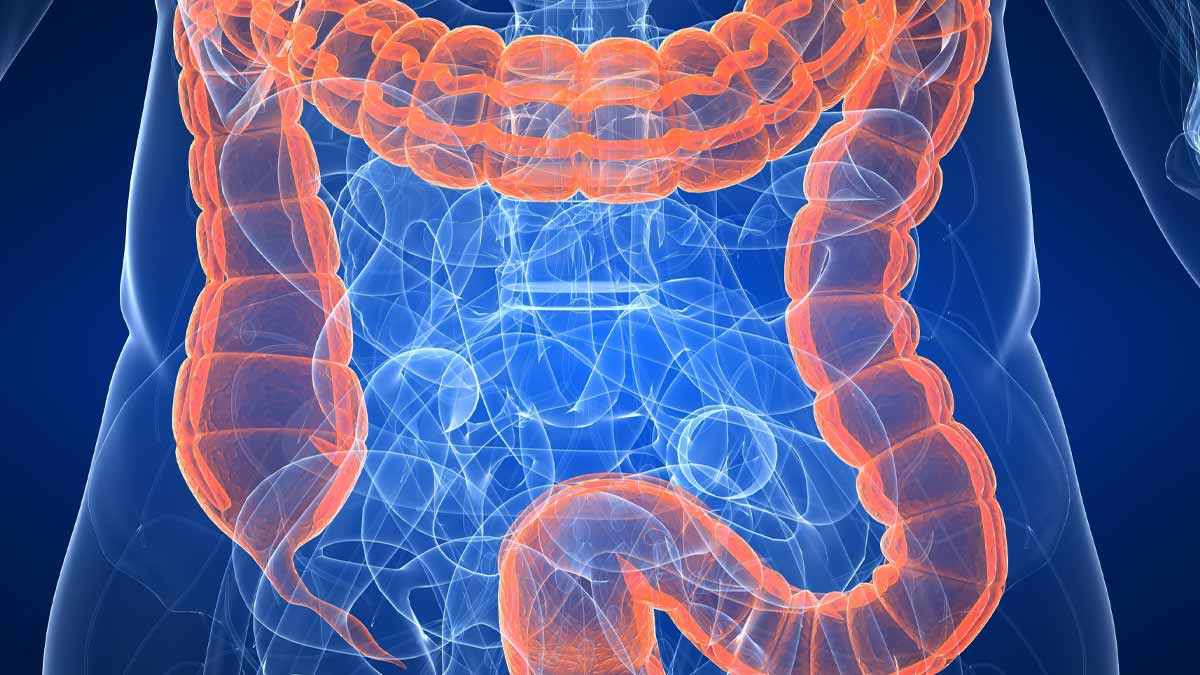
Recent research has begun to unravel the complex relationship between sleep, stress, and gut health in the development and progression of colorectal cancer. Emerging findings suggest that disruptions in the circadian rhythm and chronic stress significantly impact gut microbiota, which can contribute to the advancement of this serious condition. As studies in mouse models reveal, the way these factors interact may offer new insights into colorectal cancer prevention and treatment.
Table of Content:-
The Role of Circadian Rhythm Disruption in Cancer Progression
The circadian rhythm, the body's internal clock, regulates essential biological processes, including the sleep-wake cycle. However, when this rhythm is disrupted—whether due to irregular sleep patterns, night shift work, or other factors—it can have detrimental effects on overall health. A study published in Science Advances in September 2024 linked disrupted circadian cycles with changes in the gut microbiome, which play a critical role in colorectal cancer progression.
Researchers observed that gut dysbiosis, or the imbalance of gut bacteria, was associated with increased intestinal permeability, which leads to inflammation. This inflammation, in turn, facilitates the progression of colorectal cancer. Dr Shuji Ogino, a professor at Harvard Medical School, emphasized that disturbances in sleep and hormonal regulation could impair the body’s natural cancer suppression mechanisms, potentially deranging growth factors that contribute to tumour development.

Ogino further pointed out the significant implications of night shift work, which has been classified as a potential carcinogen, on the body's homeostatic processes. With disrupted sleep, the body's neuronal and endocrine systems fail to function optimally, leading to compromised gut homeostasis—an essential factor in maintaining a healthy gut microbiome.
Stress and Its Impact on Gut Health and Cancer Development
Chronic stress is another critical factor that has been shown to negatively influence the gut microbiota and promote colorectal cancer progression. A study presented at the 2024 United European Gastroenterology (UEG) Week revealed that stress-induced disruptions in gut microbiota can increase tumour burden in colorectal cancer models. The research, led by Professor Jinlin Yang's group from West China Hospital, Sichuan University, focused on the effect of chronic stress on gut bacteria in mice.
Also Read: ARFID: The Eating Disorder That Triggers Fear of Food—Causes and Symptoms Revealed
In this study, researchers induced stress by placing mice under restraints and then performed faecal transplants to observe how stress altered gut microbiota. Mice that received faecal transplants from stressed mice exhibited a significantly higher tumour burden than those who received transplants from non-stressed mice. This suggests that stress-induced changes in gut bacteria can play a crucial role in the progression of colorectal cancer.
The lead researcher, Dr Qing Li, noted that supplementing with Lactobacillus plantarum—a beneficial bacterial strain—helped inhibit colorectal cancer progression in stressed mice. This finding underscores the potential of targeting gut bacteria as part of a broader strategy for preventing stress-related cancer progression.
How Gut Microbiota Changes During Stress and Sleep Disruption
The gut microbiome is a vital component of overall health, contributing to immune function, nutrient absorption, and the regulation of inflammation. Studies have shown that both stress and sleep disruption can alter the composition of gut bacteria, increasing the risk of colorectal cancer. Specifically, chronic stress has been found to reduce the presence of beneficial bacterial strains, such as Lactobacillus, which help protect against tumour development.
Further, a disrupted circadian rhythm can exacerbate gut permeability issues, allowing harmful substances to pass through the intestinal wall and triggering inflammation. This inflammation not only promotes cancer but also hampers the immune system's ability to fight off malignancies. Dr. Anton Bilchik, a surgical oncologist, pointed out that while the exact cause-and-effect relationship between circadian disruption and cancer has yet to be fully established, the findings open up new avenues for exploring how lifestyle factors may influence early-onset colorectal cancer.
Also Read: Your Toothbrush And Showerhead May Be Hosting Hidden Viruses, Study Reveals
Future Directions: Can Gut Health Be Targeted for Cancer Prevention?
The link between gut health and colorectal cancer progression highlights the potential for developing targeted interventions aimed at restoring healthy gut microbiota. Researchers are optimistic that probiotic supplementation or dietary changes could help mitigate the adverse effects of stress and circadian disruption on the gut. Specifically, increasing levels of beneficial bacteria like Lactobacillus could help regulate intestinal permeability and reduce inflammation, lowering the risk of colorectal cancer progression.
As more studies focus on the gut microbiome's role in cancer, the hope is that future treatments will not only address the disease itself but also target underlying factors like stress and sleep disruption that contribute to its development.
Bottomline
The connection between sleep, stress, and gut health offers valuable insights into the mechanisms driving colorectal cancer progression. Disruptions to the circadian rhythm and chronic stress can significantly impact gut microbiota, leading to increased intestinal permeability, inflammation, and tumour development. By focusing on restoring a balanced gut microbiome through potential interventions like probiotics, researchers hope to find new ways to prevent and treat colorectal cancer more effectively.
Also watch this video
How we keep this article up to date:
We work with experts and keep a close eye on the latest in health and wellness. Whenever there is a new research or helpful information, we update our articles with accurate and useful advice.
Current Version